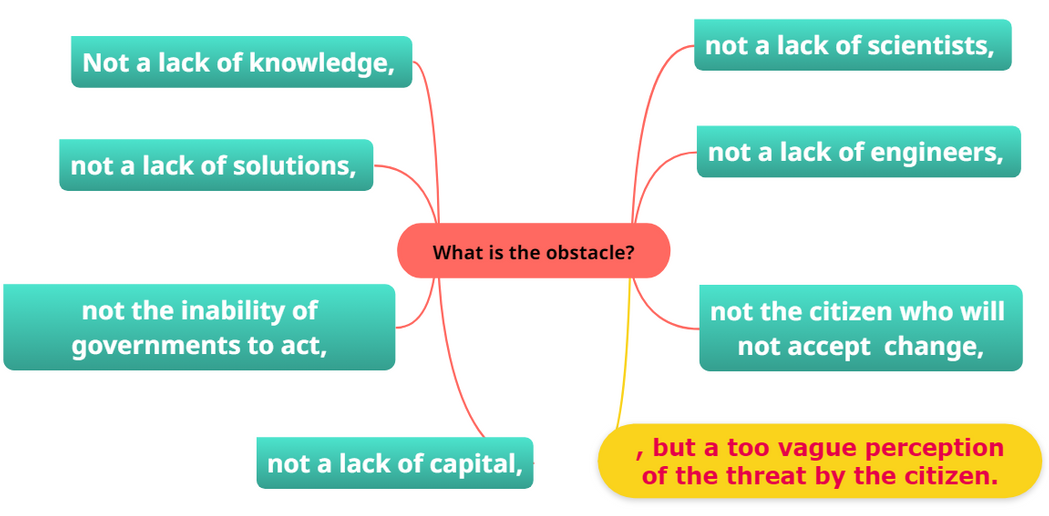Programmers and Cheese-makers, Unite!
Martin Bartels
12 May 2021
New powerful platforms
In recent years, we have seen the astounding rise of companies that, with the help of sophisticated Internet-based platforms, make it easy for their customers to avail themselves of valuable resources, usually at lower prices. Globally standardised apps allow people to access chauffeur services or holiday accommodation, for example.
While they do not own the resources, the platform operators are very efficient intermediaries. There is increasing criticism from the owners of the resources to be mediated because they feel disadvantaged in the distribution of economic yields. There is a view that the management of the platforms, and in particular the shareholders, not only have the longer leverage due to their technical control of the allocation, but also make an excessive use of it in their favour. The grievance is "exaggerated extraction."
The accusation may lead courts and legislators to intervene to shift the power structure of the operating companies in favour of the resource owners. In such cases, the owners may be guaranteed a minimum of benefits.
The platforms may perceive themselves as global and thus not national. In fact, however, the resources which they allocate are always national. Nation states undeniably have the right to define standards for their territory.
Extraction
The question of the adequacy of extraction by shareholders is as old as the first incorporated company. The Dutch East India Company (“Vereenigde Oostindische Compagnie”), founded in 1602, was the first company to limit the personal liability of its shareholders to the nominal value of their shares and to focus the interest of the shareholders solely on extraction. The shareholders made their revenue through transactions with the shares and through the distribution of profits.
https://dutchreview.com/culture/history/voc-dutch-east-india-company-explained/
https://www.businessinsider.com/rise-and-fall-of-united-east-india-2013-11?r=DE&IR=T
It is in the nature of the corporation, even today and regardless of its unfortunate beginnings as vehicles for colonialism, that shareholders are keen on extracting profits without having to be interested in how these are generated. We can call failures and abuses of the model "accidents" or give preference to Peter Schumpeter's notion of occasional "creative destruction". Nonetheless, there can be no doubt about the model's historical success. Over the centuries the concept has evolved in the finer details, stimulated national economies and promoted technical progress. This aspect is not the subject of this article, so we will not delve into it.
A modern attempt to replace the extraction model: “ownership economy”
In order to get straight to the core of the question, we will now skip the classical economic debates on the topic of "extraction" and turn our attention to the issues triggered by the platforms which were mentioned at the beginning of this article.
On 14 July 2020 (French Revolution Day!) Jesse Walden published a passionate article on what he labelled the “ownership economy”
https://variant.fund/the-ownership-economy-crypto-and-consumer-software/ .
Taking the crypto space’s success story as a point of departure, he argues that in the programming sector there is not always a need for shareholders interested only in extraction. Rather, the programmers who create economic value could secure the economic advantage for themselves without having to share it with outsiders. He describes examples of platforms through which programmers, independent of their locations, serve their clients directly and put themselves in a more advantageous position through their shared independence.
SingularityHub staff together issued an impassioned call to break free from shareholder chains and instead build cooperative structures that give profits only to operators.
https://singularityhub.com/2020/11/12/can-the-ownership-economy-fix-internet-platforms/
David Richins argues particularly enthusiastically that with the "ownership economy" a new model is now available that stands between the two irreconcilable systems of capitalism and socialism and avoids their disadvantages: "Something new and different is born.”
https://www.youtube.com/channel/UC0gAiB_tl9I9WNwb1iKq2nw
The ideal habitat for this new model that the masterminds unanimously recognise is the blockchain, whose structure is considered ideal for the operation of egalitarian networks.
https://www.forbes.com/sites/mattspoke/2020/10/27/blockchains-and-the-ownership-economy/
There is a growing consensus that mature electronic platforms are now the means to connect service providers in such a way that they can successfully distribute high-quality services together and without external shareholders.
Back to planet earth
There are no reasonable arguments against the substance of the "ownership economy" approach. However it serves the good cause to bring the feelings of enthusiasm from the stratosphere back to the ground. In fact, the range in which this logic can claim validity is much larger than the authors cited expect:
Modern alignment of human resources
Much of the “ownership economy” logic is to be seen against the background of constantly improving global infrastructure for fast communication and an economic model that includes and rewards talents in certain modern work processes regardless of their location and solely with regard to the value of their contributions. Particularly the software industry’s Open Source movement makes valuable contributions regardless of the geography and origin of those involved. This also serves the recognised goals of diversity in the talent pools and integration of emerging market economies without forcing specialists to emigrate.
Economic necessities with mainly positive side effects, not idealistic objectives, are at work here.
The "ownership economy" is the continuation of a successful model
In the 19th century, when poor farmers had no capital to buy powerful agricultural machinery, they set up cooperatives with their savings. These then bought, maintained and used the expensive equipment together. In big cities, when low-income citizens could not afford to pay the rent, they set up housing cooperatives. These constructed and managed buildings that created affordable housing. In view of rising rents, membership in a housing cooperative is still an essential pillar for many people to secure their economic existence.
Individuals like
Friedrich Wilhelm Raiffeisen
https://www.youtube.com/watch?v=SwIfwgLFouU
https://www.iru.de/about-iru/,
Robert Owen
José María Arizmendiarrieta
https://www.youtube.com/watch?v=QPhk-ljfpdI
https://www.youtube.com/watch?v=zO9GicoqCTM
the Friendly Societies movement
https://omelas.co.uk/2019/08/16/the-forgotten-history-of-friendly-societies/
and the National Cooperative Business Association
stand at the beginning of economic models based on common ownership without external shareholders. A very large number of interconnected cooperatives are guided by this model and have become a powerful and valuable part of many economies. They are serious competitors of private enterprises and public institutions. One of their strengths lies in the loyalty of their members, who are co-owners.
Cooperatives do not refuse to make profits. They differ from charities, which do not pursue profit as a goal at all. Cooperatives do not know the pressure to pay dividends to external shareholders. Since the shareholders of the cooperatives are themselves, in whole or in part, the often numerous users or beneficiaries, they easily become rooted in society.
Cooperatives have conquered substantial market shares in many sectors: agriculture, housing, financial services, purchase and sale of e.g. shoes, electronics, foodstuffs, forestry and healthcare.
https://ec.europa.eu/growth/sectors/social-economy/cooperatives_en
Mondragón is the biggest cooperative group of the world
https://www.nytimes.com/2020/12/29/business/cooperatives-basque-spain-economy.html
https://www.youtube.com/watch?v=L9sV6peQgUk
On average, cooperatives are more stable in crisis situations than companies. The reason for their resilience may be that most cooperatives were created in response to emergencies. The defence mode is an essential part of their DNA.
As early as the 19th century, many nation states began to additionally stabilise cooperatives beyond their articles of association through statutory foundations. They continue to adapt this legislation to new requirements.
Close ranks
The study of the historical causes and the resulting ethical foundations of successful cooperatives is undoubtedly exciting. However the representatives of the "ownership economy" approach are concerned with concrete results. They will know that success is contagious. So the best approach to get their ideas on the road to success quickly and without unpleasant surprises is to take a pragmatic approach by talking to firmly established and dynamically growing cooperatives. These are open by nature.
Two questions seem particularly relevant:
• How can a cooperative expand quickly and sustainably where the market is mature and very competitive?
• How and in which areas can the new electronic platforms achieve the most valuable effects?
The proposal could be to talk to cooperatives that have managed to build up strong positions in very demanding markets. Additionally, cooperatives that, like the representatives of the "ownership economy", have potential to increasingly achieve their success with modern electronic means, should be of particular interest:
(i) Italian cheesemakers
Italy is a country with zero tolerance for bad or mediocre food. So this is a hugely challenging market for suppliers.
https://www.bbc.co.uk/reel/video/p09cstbb/the-surprising-link-between-food-sin-and-the-oral-phase
One of the globally highly valued top products is Parmesan cheese, “Parmigiano Reggiano”. This product is the result of centuries of accumulated expertise and continuous ambition to deliver best quality.
https://www.parmigianoreggiano.com/
85% of the Parmigiano factories are cooperatives co-owned by the dairy farmers who provide the milk
http://www.bbc.com/travel/story/20190127-italys-practically-perfect-food
https://caseificiofiordilatte.it/cheese-factory/
https://poggiolicoopcasearia.it/en/our-story/
https://www.youtube.com/watch?v=oj2wrNnhMpc
and are fighting to secure their prosperity with the best technical equipment and methods.
The farmers’ cooperatives are also innovative in terms of financing, because they use the cheese as collateral for bank loans already during the slow maturation process.
https://www.reuters.com/article/us-italy-bonds-parmesan-idUSKCN0VB1OQ
The wealth of experience in conquering and defending mature markets will be impressive.
(ii) Hamburg taxi drivers
It is a mistake to believe that classic regulated taxi companies are moribund. In Hamburg, a traditional taxi company, a cooperative, has positioned itself in such a way that the new chauffeur services find it difficult to compete, despite lower prices.
https://www.taxi211211.de/en/home.htm
"Hansa-Taxi" used to be and still is the market leader in Hamburg. The company is faring well even under the conditions of the COVID pandemic. The recipe for success is a well-developed combination of classic and new success factors:
• The customer orders a ride either via a now popular app or by phone. There is no compulsion to use the electronic route, so customers with more traditional preferences feel no hurdles.
• The response is pleasantly personal for registered customers and always extremely polite.
• The company only uses only modern and well-maintained cars.
• It immediately addresses special needs (e.g. child seats).
• Special services (e.g. pick-up from the airport, tourist guides) complete the offer.
• The drivers have undergone special training so that the passenger feels as if (s)he is being accompanied by a first-class butler in terms of courtesy and assistance.
The cleverly designed combination of modern technology with the traditional personal needs of customers has an inclusive effect simply because it appeals to more people. No customer senses an attempt to force them to use electronics, not even a nudge, but everyone has the opportunity. Hamburgers honour the freedom to choose and consciously pay a higher price to the cooperative than they would for the use of the new chauffeur services.
It is likely that the renunciation of pushing the customer down a particular use case scenario alone is a key to customer satisfaction and thus to market success. Forcing the customer to use a service a particular way is not free of coercive elements. It is better to do without it.
The Hamburg cooperative will have a few more recipes for success that are valuable for the masterminds of the "ownership economy".
Further expansion
It is probably fair to say that the evolving model of the "ownership economy" fits harmoniously into the cooperative movement, adding the use of location-independent electronic platforms for the coordination of high-value human resources as an additional building block.
Advanced blockchain technology is already being used where cooperatives started, namely in the distribution of usage rights for agricultural machinery.
In which areas can the next successes be achieved using the absence of extraction by external shareholders?
In addition to programming, obvious areas are those in which high-quality online services are already beginning to develop and can be expected to grow qualitatively: Education, media, medical counselling. The prognosis for finding further areas of application is promising. And creativity, just like electronics, needs no borders.
We know for sure that cooperatives are more resilient than corporations and have the ability to enrich the market with high quality services and goods, the quality of which they continue to perfect. This leads to the next question, which we cannot answer here:
How "agile" are they in the modern sense of the word?

